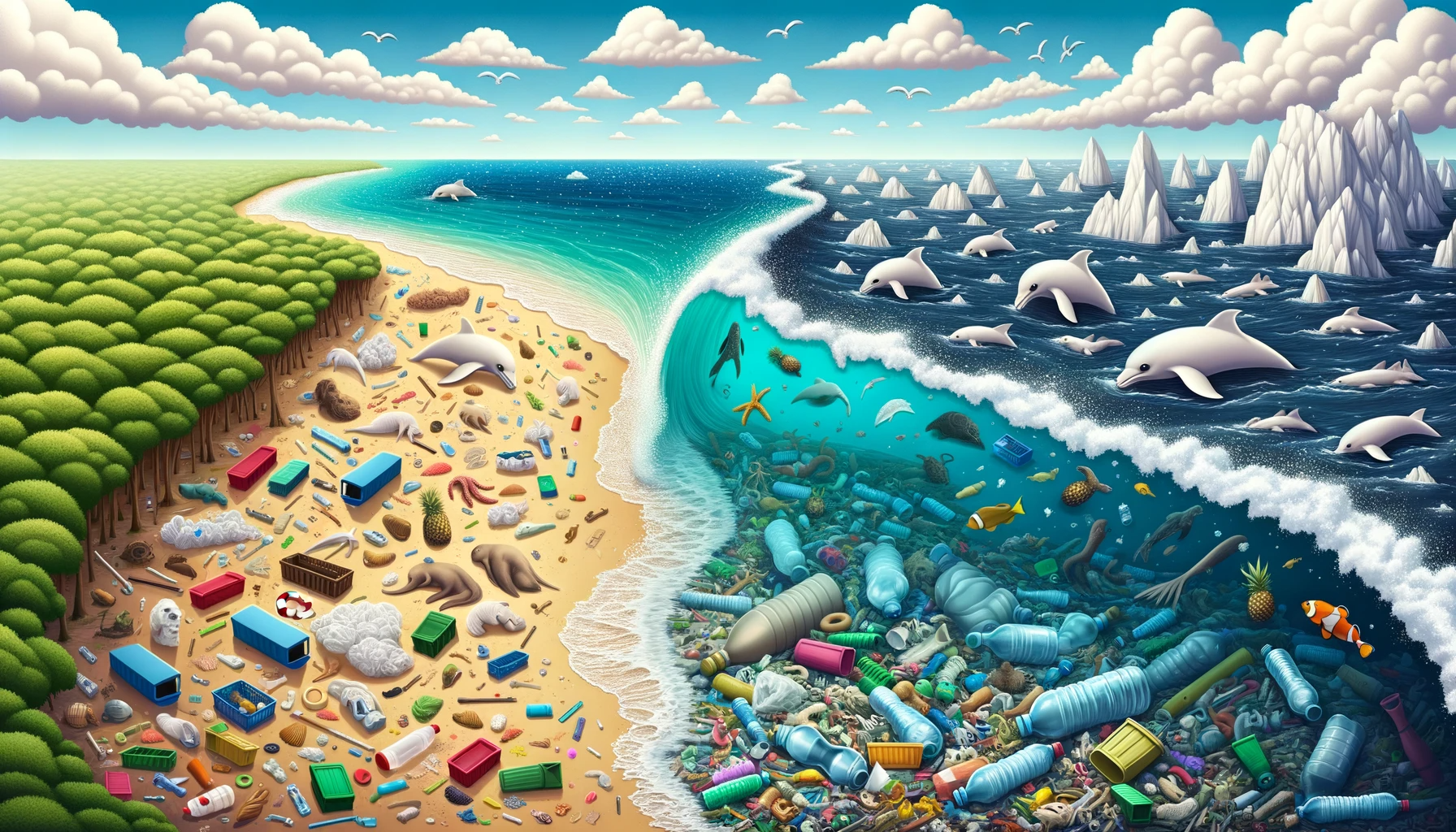
Environmental Impacts of Plastic Pollution From Waste

Plastic pollution from waste has emerged as one of the most pressing environmental challenges of our time. From oceans to landfills, plastics have infiltrated every corner of our planet, leaving a trail of ecological destruction in their wake.
Let's explore the multifaceted environmental impacts of plastic pollution from waste, shedding light on the gravity of the issue and uncovering ways to mitigate its effects.
The Proliferation of Plastic
Plastic, a versatile and durable material, has found its way into virtually every aspect of our lives. Its convenience and affordability have led to a proliferation of plastic products, from single-use bottles and bags to intricate packaging.
However, this very versatility has contributed to the exponential growth of plastic waste. The alarming rate at which we produce and dispose of plastic items is a primary driver of plastic pollution.
Plastic waste, once discarded, often ends up in landfills or litters our landscapes. Due to its resistance to degradation, plastic persists in the environment for hundreds of years, accumulating over time.
This buildup of plastic waste not only clutters our surroundings but also poses significant threats to wildlife and ecosystems.
Impact on Wildlife
One of the most heart-wrenching consequences of plastic pollution is its impact on wildlife. Marine animals, in particular, are vulnerable to ingestion and entanglement in plastic debris.
Sea turtles mistake plastic bags for jellyfish, a staple of their diet, leading to fatal consequences when ingested. Similarly, seabirds often consume small plastic particles, which can block their digestive systems or lead to malnutrition.
In addition to ingestion, plastic waste poses a significant threat through entanglement. Fishing gear and discarded plastic materials can ensnare marine animals, leading to injury or death.
The heartbreaking images of animals struggling with plastic debris are a stark reminder of the urgent need to address this environmental crisis.
Microplastics - A Hidden Threat
Microplastics, tiny plastic particles less than five millimeters in size, represent an insidious facet of plastic pollution. These minuscule particles can originate from the breakdown of larger plastic items, such as bottles and bags, or be intentionally manufactured in products like microbeads in personal care products.
Once in the environment, microplastics can infiltrate soil and water systems, making their way into the food chain. They have been found in marine organisms, including fish and shellfish, which are ultimately consumed by humans.
The long-term health effects of microplastic ingestion are still under investigation, but concerns about potential harm to human health and the environment are growing.
Polluting Our Oceans
Plastic pollution in the world's oceans has garnered significant attention in recent years. The Great Pacific Garbage Patch, a vast collection of floating plastic debris in the Pacific Ocean, is one of the most visible manifestations of this problem. It serves as a grim reminder of the far-reaching consequences of plastic waste.
Apart from its unsightly appearance, ocean plastic pollution has far-reaching ecological implications. It harms marine life, disrupts ecosystems, and poses risks to human health through the consumption of contaminated seafood.
Additionally, plastics in the ocean can absorb and transport harmful chemicals, spreading pollution to remote regions and impacting delicate marine ecosystems.
The Role of Eco Resources in Plastic Waste Management
Amid the dire environmental impacts of plastic pollution, companies like Eco Resources in Perth are stepping up to address the crisis.
Eco Resources, a leading waste management company, specializes in waste recycling and offers sustainable solutions to manage plastic waste. Through their innovative processes and commitment to environmental responsibility, they contribute to reducing the environmental footprint of plastic pollution.
Eco Resources employs state-of-the-art recycling technologies to process plastic waste, diverting it from landfills and incinerators.
By recycling plastic materials, they help conserve resources, reduce energy consumption, and minimize the release of greenhouse gases associated with plastic production. Their efforts align with the broader goal of mitigating the environmental impacts of plastic pollution and promoting a more sustainable future.
Plastic pollution from waste is a global crisis with far-reaching environmental consequences. It affects wildlife, ecosystems, and even human health through the presence of microplastics in our food and water.
However, companies like Eco Resources are making strides in addressing this issue by providing responsible waste recycling solutions. As we confront the environmental impacts of plastic pollution, it is crucial for individuals, businesses, and governments to take collective action in reducing plastic waste and supporting sustainable alternatives.
Together, we can work towards a cleaner, healthier planet where plastic pollution becomes a relic of the past.